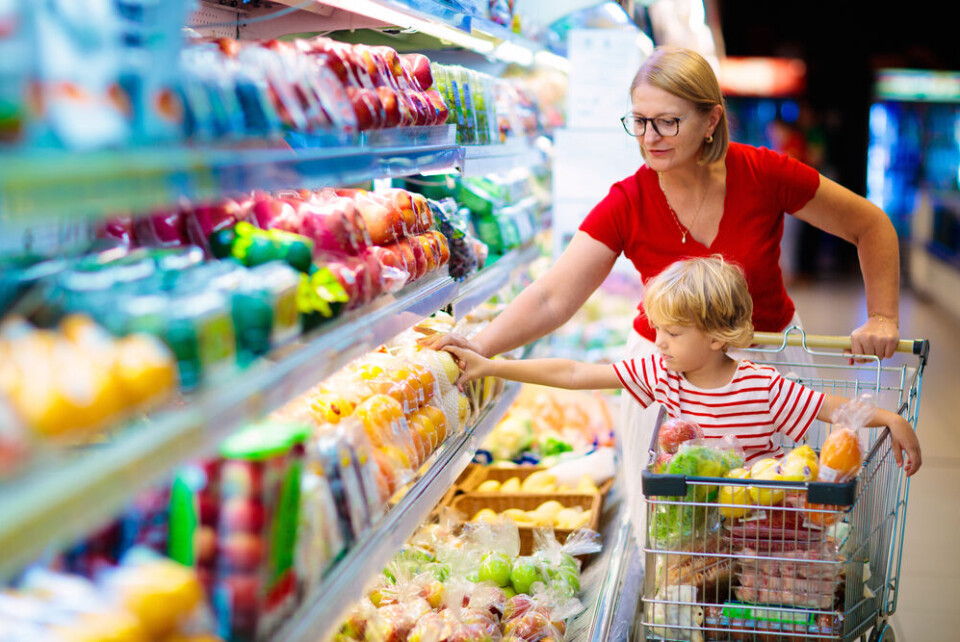-
Which fruits, vegetables and fish are in season in France this April?
Strawberry season begins, compensating for end of winter vegetables
-
Learning French: the origins and meaning of gratin
Understand the etymological roots of this beloved dish with a crispy, cheesy topping
-
Exclusive interview: New two-star Michelin chef Philippe Etchebest
Revisit our exclusive 2023 interview with the man behind Maison Nouvelle as he is rewarded in the 2025 Michelin Guide France
Why are essential items so expensive in France?
This is not the first time, in 2019, food products and non-alcoholic beverages were 15% more expensive in France than the EU average

Reader question: I saw a recent study that found prices of many essentials in France, including pet food, laundry detergent and milk, are among the highest in Europe. What is the reason for this?
The study you are referring to was undertaken by consumer analyst Circana for the BBC. It compared the costs of 23 food and non-food items in France, Germany, the UK, Italy, Spain and the Netherlands.
France was the most expensive by some distance – the items totalled £67.57, compared to Spain in second place at £52.75, and £51.72 in the UK.
Laundry detergent, nappies and toothpaste were found to be much pricier in France, and yoghurt, baby food and sugar were among foods costing more.
Circana said a key reason for this is the relatively lower competition from chains such as Aldi and Lidl: “Discount chains are present in France but account for less than 15% of grocery sales, as compared to 42% in Germany as an example.”
The company also cited other factors, including “the effect of government protection for food producers, recent shortages of poultry and eggs due to avian flu, local cuisine tastes which are prone to demand supply gaps, and the level of exposure to energy prices and transport disruption”.
Food prices in particular are highly regulated. The 2018 loi Egalim forces retailers to sell food at prices that are at least 10% higher than they paid, which is meant to ensure producers are paid fairly.
There have been calls to scrap this in the context of high inflation, but it was recently extended until April 2025, though fruit and vegetables are excluded.
Supermarkets are banned from offering special discounts over 34% on the price of food.
This is being extended to hygiene products such as nappies, shampoo and shower gel from next March.
Read also: Senators back ending 2-for-1 deal on toiletries in French supermarkets
The Egalim law was updated in 2021 to provide greater protection for farmers by ensuring production costs are taken into account when setting prices.
Consumer prices are partly the result of annual negotiations between suppliers and supermarkets, but they must now be renegotiated if the price of raw materials increases.
This is not the first report to find that French consumers pay higher prices. In 2019, food products and non-alcoholic beverages were 15% more expensive in France than the EU average, according to Eurostat.
Experts said that another reason for this was that hypermarchés are common in France, rather than smaller discount stores. These offer a wide variety of products, including premium, local and artisanal varieties, which are often more expensive.
Having said this, there can be quite a price difference for the typical basket of shopping from one chain (or even branch) to another. Also, it is worth looking at some of the advantages supermarkets offer to customers. For example, Casino has a scheme where you can buy a loyalty card that provides a 10% discount on each purchase.
Consumer group UFC-Que Choisir has created an interactive map that compares the ‘click and collect’ prices of around 6,000 supermarkets and is updated each week.
Read also
French supermarkets fined a total of €4.5m for uncompetitive practices
French supermarkets begin drive to keep prices down on selected range
Which supermarket in France is the cheapest? Tests show 17% difference
























